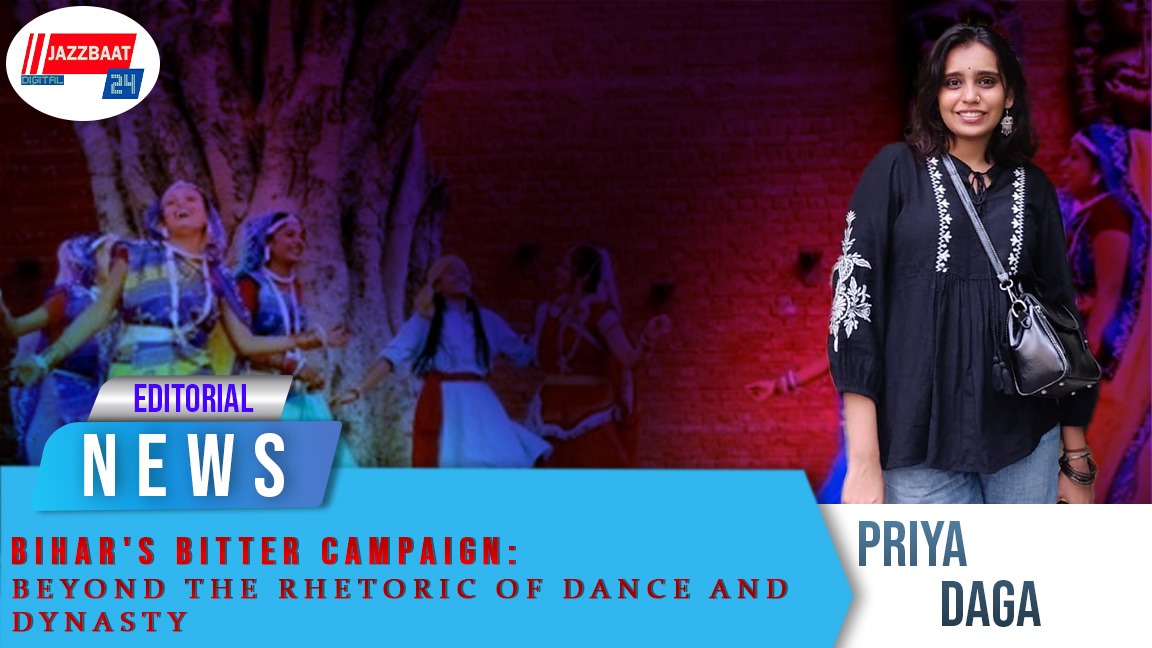
The Bihar election campaign has descended into a familiar pattern of personal attacks and provocative rhetoric, with both the ruling NDA and opposition Mahagathbandhan trading barbs that generate headlines but offer little substantive vision for the state's future.
Rahul Gandhi's suggestion that Prime Minister Modi would "dance for votes" is political theatre at its most theatrical. While it may resonate with supporters already convinced of the opposition's narrative, such hyperbole risks trivializing legitimate critiques of governance. The Congress leader's "two Indias" argument contrasting Modi's sanitized Chhath Puja event with the polluted Yamuna does highlight real issues of inequality and performative politics. Yet framing it through mockery rather than policy alternatives weakens what could be a powerful argument about development priorities.
Equally problematic is Amit Shah's counter-attack dismissing dynastic politics while conveniently ignoring similar patterns within the BJP itself. His "no vacancy" jibe at Lalu Yadav and Sonia Gandhi seeking positions for their sons plays to gallery but sidesteps substantive questions about governance. The "jungle raj" rhetoric invoked repeatedly by the NDA has become a tired trope, deployed whenever the opposition gains momentum. After two decades in power even if shared with allies the NDA cannot perpetually campaign on what Bihar might become if the opposition wins. At some point, it must defend what it has actually delivered.
The infiltration bogey raised by Shah deserves particular scrutiny. The Election Commission conducted a special voter roll revision citing concerns about foreigners but has provided no data on how many were actually found. Using unsubstantiated claims about Bangladeshi infiltrators to polarize voters is cynical politics that undermines democratic discourse. Gandhi's "Vote Adhikar Yatra" may have legitimate concerns about voter deletions, but Shah's characterization of it as a "Ghuspaithiya Bachao Yatra" represents the kind of inflammatory rhetoric that poisons public debate.
What's conspicuously absent from both sides is serious engagement with Bihar's chronic problems. The state continues to see massive outmigration of youth seeking livelihoods elsewhere. Tejashwi Yadav's promise that "by next Chhath, Bihar will not see migration" sounds aspirational, but where are the concrete plans? Similarly, while both Gandhi and Yadav speak of preventing youth from leaving Bihar, their manifesto needs to detail how exactly they'll create the economic opportunities that would make staying viable.
Bihar deserves better than a campaign reduced to personality clashes and dynasty debates. Voters need to hear how parties plan to address healthcare deficiencies, improve education outcomes, create non-farm employment, and build infrastructure that doesn't require the young to abandon their homeland. The "Viksit Bihar" that Shah promises under Modi's leadership needs measurable parameters, not just slogans.
In democracies, elections should be competitions of ideas, not just contests of insults. Both alliances would serve Bihar's people better by focusing less on whether Modi would dance or whether Nitish is a puppet, and more on the unglamorous work of governance, fixing schools, building roads, ensuring consistent power supply, and creating an economy where migration is a choice, not a necessity.
The real question Bihar faces isn't about jungle raj returning or remaining under BJP control. It's whether any party is serious about addressing the structural issues that have kept the state behind for decades. Until campaigns move beyond theatrical accusations to substantive policy debates, Bihar's voters are left choosing between competing rhetorics rather than competing visions a disservice to a state that desperately needs both parties to raise their game.